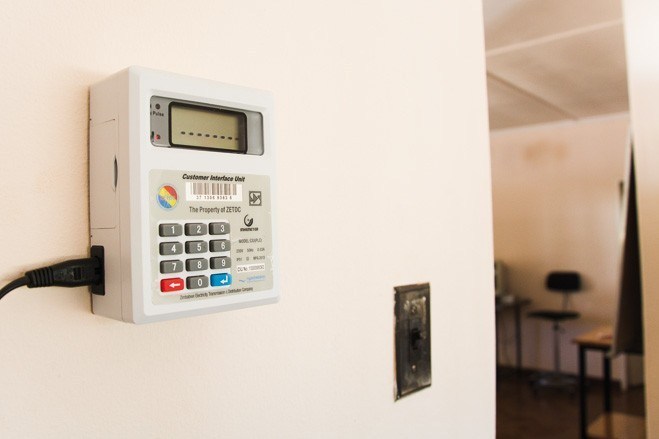Health sector beats power outages
Service delivery in most public health facilities have not been disrupted by the recent
power outages following the implementation of the solar for health initiative, medical
practitioners have said.
So far through the initiative, at least 1 047 out of a target of 1 860 translating to more than
56 percent of health facilities across the country, mainly in rural areas have been fitted
with solar energy as Government forges ahead to ensure the electrification of health
facilities in the country.
Installation of the solar systems across Zimbabwe is aimed at ensuring guaranteed power
supplies and countering the effects of any power outages that have been disrupting service
delivery.
In separate earlier interviews medical practitioners commended the impact of solar energy
at health institutions.
District Medical Officer for Inyanga Dr John Muungani said: “Solar system has improved
service delivery at our institutions. There are other procedures which cannot be done
without power so when there is a power outage they have to wait for power to be restored,
which is not ideal because some will be emergencies.
“Power is also needed for storage purposes and it has to be continually available. Prior to
the coming in of alternative energy we encountered problems.
“No procedure can be put on halt now because of the absence of power. If it is an
emergency, it will be dealt with as such.
“Our hope is that in the near future all health facilities will be fitted with solar energy, but
this is a good start and it’s quite commendable,” said Dr Muungani.
District Medical Officer for Victoria Falls Dr Fungai Mvura also commended the impact of
solar energy in health delivery.
“We need constant power supply for storing medicines as well as most of our procedures,
without solar they were constantly disrupted but now we are happy we can do our work
uninterrupted.
“All these improvements are aimed at improving our health delivery system and that is
commendable,” said Dr Mvura.
“The power outages are there but the impact has been managed in most of our health
facilities.”
Natpharm also commended the impact of solar energy in health institutions.
They say it was expensive to be constantly disbursing medicines in smaller quantities so
that they do not lose potency.
“It is commendable it enables medicines to be stored longer without losing its efficacy and
they can also be stored in huge quantities at respective health facilities,” said the
company’s spokesperson Mr Munyaradzi Musiiwa.
“Drugs do not lose potency. But they were not going bad because we would supply smaller
quantities depending on their storage capacities. Solar energy is quite commendable and
beneficial.”
Also there is a huge ongoing borehole drilling project spearheaded by President
Mnangagwa across the country to ensure guaranteed water supply.
This will aid into a sharp improvement in basic public health by converting pit latrines to
flush toilets.
The new technology, already successful in a pilot phase, will allow flush toilets using little
water in peri-urban and rural areas off the main sewers, and so cut back drastically on the
risks of outbreaks of water-borne diseases.
Improving the country’s facilities at health institutions, boosting the quality of health
care, was used as a pivot to respond to the global Covid-19 pandemic and people will
benefit long term.
President Mnangagwa declared the pandemic a state of disaster from the outset, leading to
improved Government resource allocation for the health sector, as well as marshalling the
private sector to come on board and help Government to boost health care delivery.
The United Nations Development Programme (UNDP) has supported Zimbabwe in a very
big way in the solar for health initiative.
According to UNDP, solar systems provide a stable, clean and reliable energy supply, even
in the most remote locations, meaning more patients can access the health services they
need.
Solar energy results in lower power bills for health facilities, these vital budget savings
can then be reinvested to support other priority health programmes or infrastructure.
UNDP says Solar for Health can make a significant contribution to the 2030 Agenda for
Sustainable Development and its commitment to “leave no one behind” by reaching
remote and under-served communities.
At the other end of the upgrade of medical systems, Zimbabwe will continue to offer more
services, with the Government now wanting to see open heart surgery and radiotherapy
services as part of efforts under the newly streamlined Ministry of Health and Child Care
to match best international practices.
Government is keen for private sector buy-in as it forges ahead with a comprehensive
health services delivery strategy meant to improve quality in both private and public
health facilities.
Government is prioritising health sector facilities renovations and re-equipping with a
view to make Zimbabwe a preferred health services tourism destination while also cutting
on outward bound trips.-The Herald









